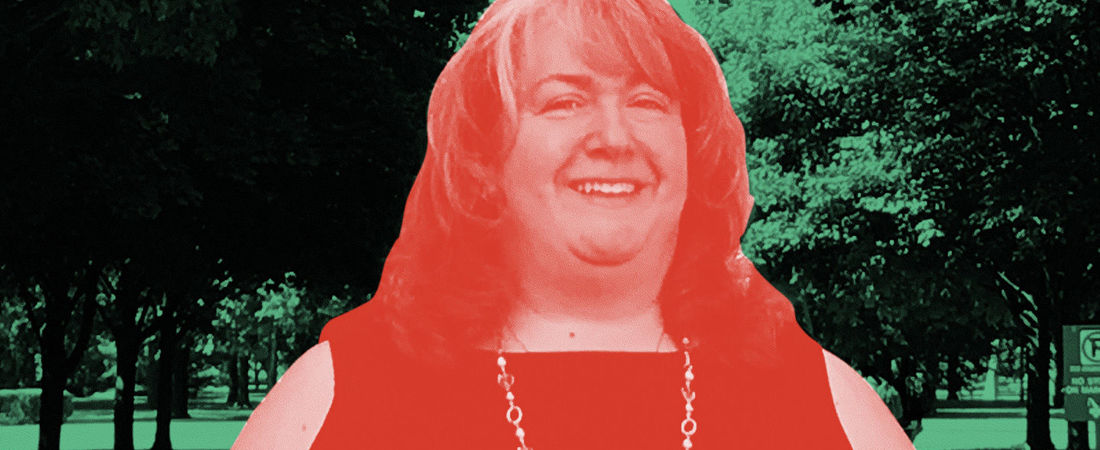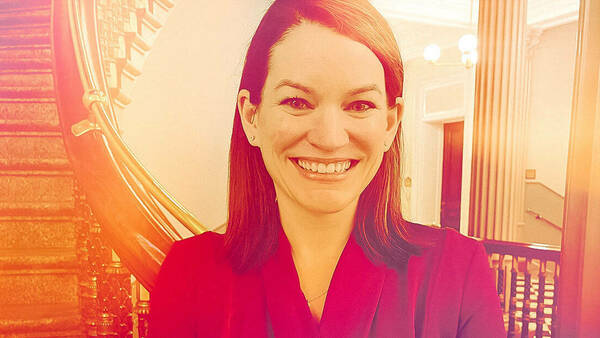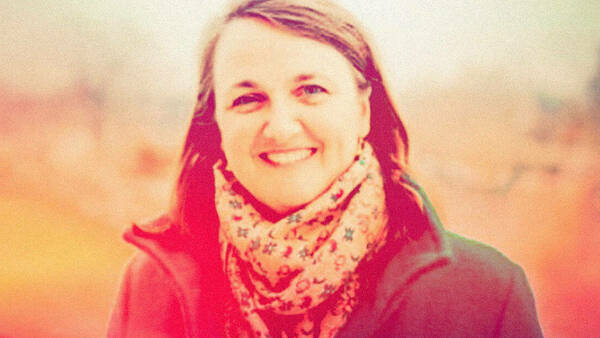Denise A. Salerno, M.D. ’89 has practiced pediatrics at The Lewis Katz School of Medicine at Temple University in Philadelphia long enough that she is now seeing the children of her patients.
“One day, about three months ago, I saw three infants and each of their moms had been my patient. One of the babies, I had been the physician for both the mom and the dad,” Salerno says. “I take care of a lot of extended families, and patients that I had as children are now in their 20s and starting their own families. That they feel comfortable and want to take their children to me—that is such an honor and a privilege when it comes full circle like that.”
Salerno, a science preprofessional major at Notre Dame and a graduate of Northwestern University’s Feinberg School of Medicine, was one of the founding physicians of Temple Pediatric Care, the university’s pediatric primary care practice. She helped launch the practice 21 years ago, right after her residency training.
“It was a great challenge,” Salerno says. “It was exciting to start something from scratch and to bring pediatrics to a campus that hadn’t treated children in a long time. There was a nursery and a neonatal intensive care unit, but other than that they weren’t used to treating children, so we did educational seminars on pediatric topics for the nurses, hospital staff, and others involved in patient care to make sure they were equipped and ready to handle pediatric patients.”
Since those early days, Salerno has maintained that same level of commitment to Temple and to her patients, most of whom live in the economically depressed north Philadelphia neighborhood surrounding the hospital.
“There are definitely challenges, in their neighborhood and in their own family. I had a five-year-old child whose dad was shot and killed while they were waiting at the school bus stop together,” she says. “My teenage patients are dealing with a lot in adolescence and don’t always have someone that they can talk to about it. Knowing that they can turn to me and I can help them with resources is very rewarding.”
As a first-generation college student herself, Salerno also stresses the importance of education to her patients. Many of her patients’ parents did not go to college, so she counts it as a highlight when she signs off on a patient’s pre-college physical.
Salerno fondly recalls patients running up to her in the office hallway to give her a hug and say thank you, and the mom who sent her a message on Facebook with photos of her daughter’s recent high school prom and graduation that said, “Thank you for helping me help her.”
Salerno says her family and Catholic upbringing taught her to be grateful for what she has and to help raise others up. It’s part of why she became a physician, and why she works with the patients at Temple. It’s also an attitude that she hopes to pass on to her two sons, Chris, 12, and Dominic, 10. In 2017 and 2018, she and her husband, Bob, took them to Notre Dame to participate in Family Volunteer Camp, which allows Notre Dame families stay on campus and support service projects in the South Bend area.
She champions this same kind of compassion and empathy in the course she teaches at Temple University Medical School. As a professor of clinical pediatrics, she teaches a course for all first and second year medical students called “Doctoring: Fundamentals of Clinical Care.”
“The doctoring course teaches clinical skills, such as how to perform a physical exam and take a medical history,” she says. “I love seeing the excitement in the students as they experience their first encounter with a patient, and also helping them deal with the challenges of medicine, like breaking bad news—how they approach that, and acknowledging how it can personally affect them.”
The course helps Salerno’s medical students synthesize their academic knowledge with professional practice, with an emphasis on social determinants of health, patient-centered care and communication, and patient safety. In addition to teaching, she is also Associate Dean for Academic Affiliates, coordinating with the hospitals and medical centers throughout Pennsylvania where Temple students participate in clinical rotations and training. The medical students’ enthusiasm reminds Salerno to maintain joy in her own work.
“As you go through a career in medicine, sometimes the administrative stuff can take away the joy, like waiting for insurance approvals for tests that you know patients need immediately. But I love seeing children grow and helping families deal with challenging situations, preparing them for what to expect as children go through different phases of life.”



